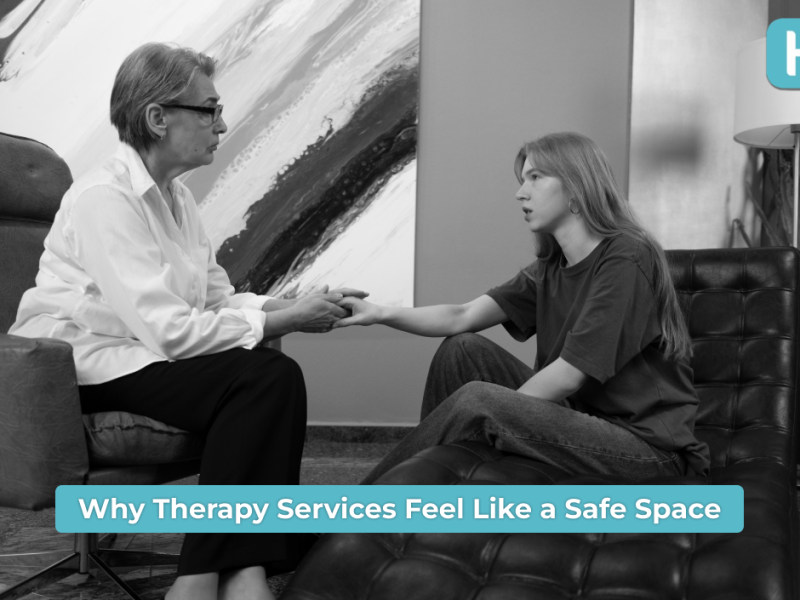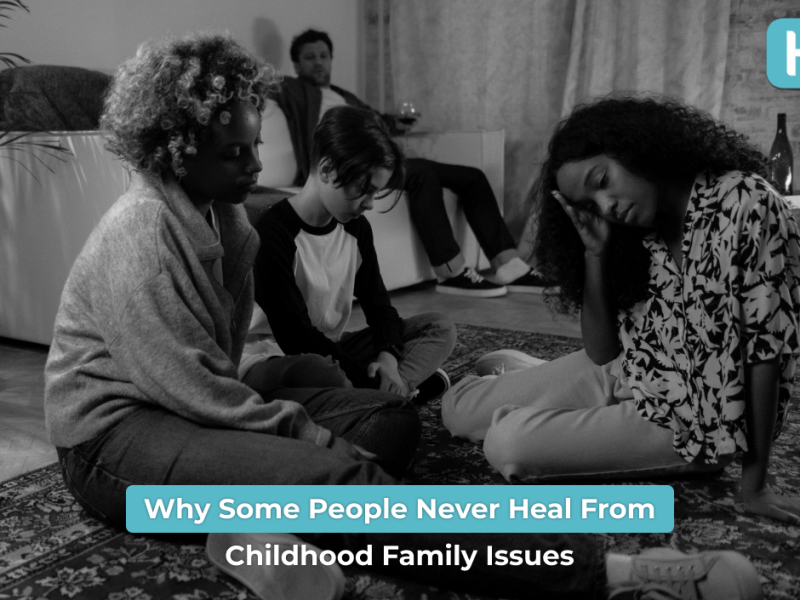“I didn’t even know I could say no.”
That’s what a 28-year-old client told her therapist after burning out — again — from always being the “reliable one.”And she’s not alone.In a recent survey, over 62% of adults said they struggle to set boundaries — not because they don’t want to, but because they don’t know.
Even more shocking? Most of them didn’t learn this in adulthood… they inherited it from childhood.If boundaries feel terrifying, guilt-ridden, or just plain confusing — here’s the truth:
It’s not a personality flaw. It’s a survival response.
Let’s explore why this happens, and how you can finally reclaim the space you deserve.
Childhood Nobody Talks About
Did you grow up in a house where…
- You were called “too sensitive” for crying?
- Saying “no” meant punishment or guilt?
- You had to earn love by being quiet, helpful, or perfect?
- You were responsible for adults’ emotions?
If yes — then boundaries were never allowed to exist.You learned early that your safety came from being agreeable — not from being authentic.
And here’s the result:
You became an adult who…Doubts yourself constantly
- Feels guilty when you put yourself first
- Confuses kindness with self-abandonment
This isn’t just emotional baggage. It’s trauma conditioning. And it rewires your brain to believe you are safest when you are small.

So, Why Are Boundaries So Damn Hard Now?
1. Because you were never taught to believe in yourself.
When children aren’t allowed to say “no” or express needs, they grow up with zero self confidence.
Instead of trusting their gut, they second-guess. Instead of setting limits, they apologize for having any.
You weren’t taught boundaries. You were taught performance.
2. Because guilt is weaponized in dysfunctional families.
In many households, boundaries = betrayal.
You say “I need space” → They say “You don’t love us anymore.”
You say “That hurt me” → They say “You’re too sensitive.”
You say “No” → They say “You’re selfish.”
This emotional manipulation can follow you for life — unless you start breaking the cycle.
3. Because no one modeled it for you.
How can you learn something no one ever showed you?
If your parents overworked themselves, kept toxic relatives around, or constantly avoided conflict, you likely absorbed their fear around boundaries too.
Boundaries Are a Language — And You Were Never Taught to Speak It
Think of boundaries like a foreign language. You didn’t fail the test — you were never given the textbook.
You were expected to be:
- Obedient
- Nice
- Quiet
- “Easy to deal with”
So when you finally try to say, “I don’t like this,” or “This doesn’t work for me,” your nervous system goes into panic mode.
Saying “no” doesn’t feel bad because it’s wrong — it feels bad
because it’s unfamiliar.
Hidden Costs of Living Without Boundaries
If you think poor boundaries only affect relationships, think again.
Here’s what they actually cost you:
Burnout: You say yes to everything — even when you’re drowning. Eventually, your body gives up before you do.
Anxiety: When you don’t know how to say “this is too much,” you live in a constant state of overload.
Identity Loss: You don’t even know what you want anymore — because your life revolves around what others need.
Broken Self Confidence:When you don’t advocate for yourself, you start to believe you don’t deserve to.

What Boundaries Actually Sound Like?
People think boundaries have to be loud or angry. Not true.
They can sound like:
- “I don’t have the capacity for that right now.”
- “Let me get back to you.”
- “That doesn’t work for me.”
- “I’m not available after 6 PM.”
They’re not dramatic. They’re direct. And they protect your peace.
“I Didn’t Know My Needs Mattered” — Sarah’s Story
Sarah, 35, was the go-to friend for everything: babysitting, venting, money, errands.
But when she needed help? Silence.
She never asked for support because she thought she’d be a burden.One day, after canceling her own birthday plans to help a friend move (again), she realized: “No one ever shows up for me because I never ask them to.”She started therapy and finally built self awareness around her patterns.
Now? She says “no” without guilt and believes she deserves more.That’s the power of boundaries.
How to Start Setting Boundaries (Even if You’re Scared)?
Here’s how to begin — without losing your mind (or everyone around you):
1. Build Self Awareness First
Ask yourself:
- When do I feel drained?
- Who do I resent right now?
That’s where a boundary is missing.
2. Practice with Safe People First
Start with low-risk situations. “I’m not free tonight, but thanks for inviting me” is a boundary win.
3. Expect Pushback (It’s a Sign You’re Doing It Right)
People who benefited from your silence will resist your voice. Don’t let that stop you.
4. Use “I” Statements
“I feel overwhelmed when plans change at the last minute. Can we stick to one plan?”
Clear. Honest. Respectful.
5. Celebrate Every Boundary You Set
Every “no” you say is a “yes” to yourself. That’s how self confidence grows — one win at a time.
Why This Isn’t Your Fault — But Is Your Responsibility?
You didn’t choose the patterns.But you can choose to break them.No one taught you boundaries, but that doesn’t mean you can’t learn.Healing is possible. And it starts with one truth:
Your needs are not too much. You are not too much.
How Can Help You Build Boundaries Without Fear?
At Helply, we specialize in helping people unlearn toxic patterns and rebuild from the inside out.Whether you’re struggling with guilt, self-abandonment, or people-pleasing — we’ve seen it. We get it.And we’ll walk with you every step of the way.
👉 You were never too much. You were just giving too much to the wrong people.
It’s time to reclaim your worth — one boundary at a time.Start therapy with Helply today.
FAQs
- Why do I feel so guilty setting boundaries?
Because guilt was used as a control tool in your past. That’s not your voice — that’s old programming.
- What if someone gets angry when I set a boundary?
Then that boundary was needed. People who respect you will adjust. The rest will reveal themselves.
- I don’t even know what my boundaries are. What do I do?
Start small. Notice where you feel discomfort, exhaustion, or dread. That’s your body signaling a boundary.
- How can therapy help with boundary-setting?
A therapist helps you unpack the root cause of your patterns, rehearse real-life conversations, and build emotional safety around saying “no.”
- Can I set boundaries and still be kind?
Absolutely. Boundaries aren’t mean. They’re clear. And clarity is kindness.
- Why is setting boundaries hard as an adult, even if my life seems stable?
Because old trauma doesn’t care about stability. It responds to patterns — not progress — until you rewrite them.
- Will I lose people if I start setting boundaries?
Yes, maybe. But you’ll also lose burnout, resentment, and emotional exhaustion. The right people won’t leave — they’ll grow with you.


